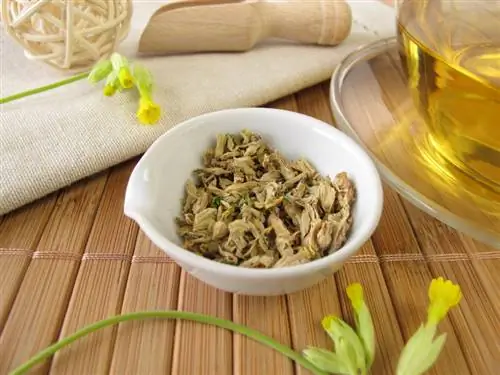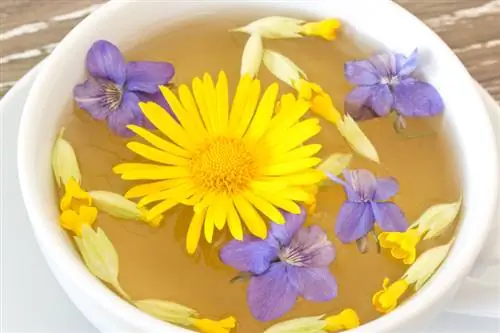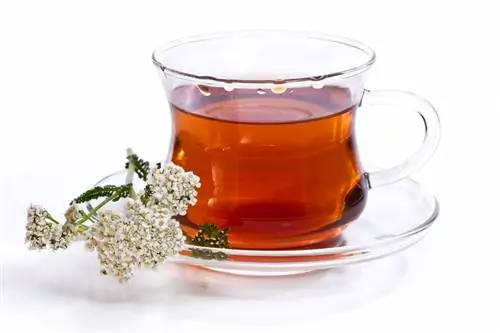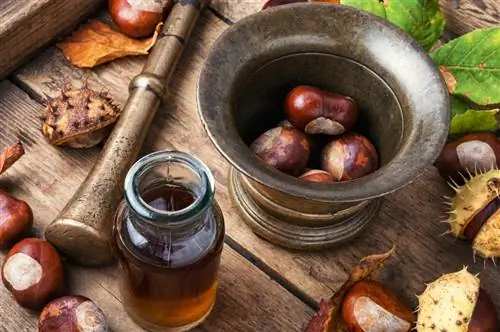- Author admin leonars@hobbygardeners.com.
- Public 2023-12-16 16:46.
- Last modified 2025-01-23 11:20.
As one of the first flowers of the year, the bright yellow flowers of the cowslip can be seen from around March / April. The plant has been used as a medicinal plant for many centuries, and its medicinal effects have now been proven in scientific studies. However, the plant is protected in the wild and may therefore not be collected.
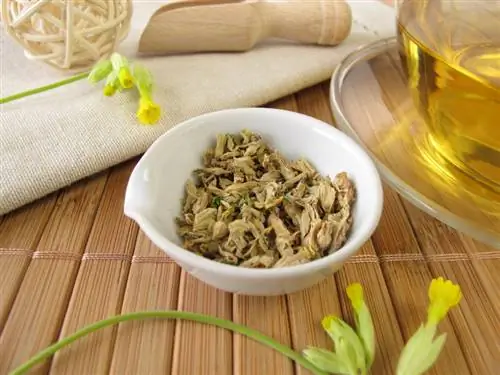
What effects does the cowslip have?
The cowslip has an expectorant, antispasmodic and anti-inflammatory effect. It is used for respiratory diseases such as bronchitis, neuralgia, migraines and nervousness. Active ingredients are saponins, essential oils, tannins and flavonoids.
The cowslip as a medicinal plant
Both the cowslip (Primula veris) and the high or forest cowslip (Primula elatior) as well as, more rarely, the stemless cowslip (Primula vulgaris) have an expectorant and decongestant effect. For this reason, the plants are preferred for bronchial infections with persistent coughs, such as bronchitis, but also for migraines, neuralgia and nervousness.
Ingredients
In addition to essential oils, tannins, silica and flavonoids, cowslips contain saponins as their main medicinal active ingredient. Phenol glycosides as well as primulaverine and primaverine are also found.
Areas of application
Primroses are considered expectorant, anti-inflammatory, antispasmodic, analgesic, metabolism-stimulating, hemostatic and blood-purifying as well as calming. For this reason, the plant is used in naturopathy primarily against the following diseases:
- Respiratory diseases: colds, bronchitis, sore throat, laryngitis, cough and whooping cough, runny nose
- Diseases of the mind and head area: headaches, migraines, toothache and tooth decay, inflammation of the gums, mouth rot, inflammation of the oral mucosa, insomnia and sleep disorders, nervousness, neuralgia, dizziness
- Organic diseases: pneumonia, myocarditis, heart failure, constipation, rheumatism, gout
- External diseases: bruises, edema
Application
Primarily the roots and flowers of the cowslip are used, which can be harvested between March and June - but not from wild collections, because the cowslip is protected. The ingredients are used internally as tea or syrup and externally in the form of compresses.
Primrose tea for coughs
Take about a heaped teaspoon full of dried cowslip flowers and pour a quarter liter of boiling water over them. Let the brew steep for about ten minutes and then strain it. If necessary, the tea is drunk lukewarm several times a day, possibly sweetened with honey.
Is the cowslip poisonous?
Sometimes you can read in various internet forums that the cowslip is poisonous. That's not true, because cowslips do not contain any toxins. However, the saponins they contain can irritate the stomach and lead to stomach problems and even nausea. In addition to sensitive people, pregnant women and breastfeeding mothers should also avoid using cowslip. Long-term use is also not advisable.
Tip
However, the cowslip cannot only be used as a medicinal plant. Its young leaves and flowers are also edible.

